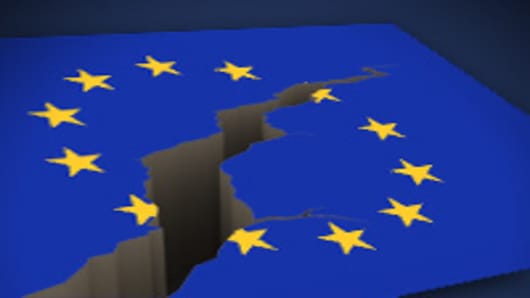The problems of the euro zone are back under the magnifying glass this week, but investors need to be careful to distinguish between the less and more successful countries.
Roughly speaking, Northern European countries are still outperforming the Southern states, with markets’ sights trained on Spain and Italy in particular this week.
“The idea that Europe is one great homogenous whole which is going into recession isn’t true. There’s a great dichotomy,” Brendan Brown, head of research, Mitsubishi UFJ Securities International, told “Squawk Box Europe.”
“The big positive news in Europe is that Germany, Switzerland and one or two other countries are actually doing very well,” he said.
Germany has outperformed most of the euro zone throughout the crisis, although its growth has slowed in recent months. Denmark and the U.K. have also benefited from being seen as relative safe havens and low interest rates, according to Dan Morris, global strategist at JPM Asset Management.
Brenda Kelly, senior market strategist at CMC Markets, tipped the Italian bond auction to be biggest driver of market sentiment Thursday.
“It’s not as bad as Spain, but there’s going to be trouble ahead for Italy,” she warned.
Inflation is set to rise up the agenda over the next year, after central banks, including the European Central Bankand the Bank of England, embarked on expansionary monetary policies such as the ECB’s long-term refinancing operation.
There are also concerns about elections in France and Greece within the next month.
“There are now a lot of unintended consequences of the extraordinary measures taken by central banks that we have to deal with, some beneficial and some not,” Brown, author of “Euro Crash,” warned. He predicts a bust in the euro zone after the German elections of 2013.
“After the elections, the big issue is does Germany go along with inflation? Does it accept recapitalizing the ECB at great taxpayer cost? Or does it walk away from the EU?” he said. “They will not accept further taxpayer euros going into Greece if they slip further. France and Germany is the key political project and that can survive the departure of peripheral countries.”



